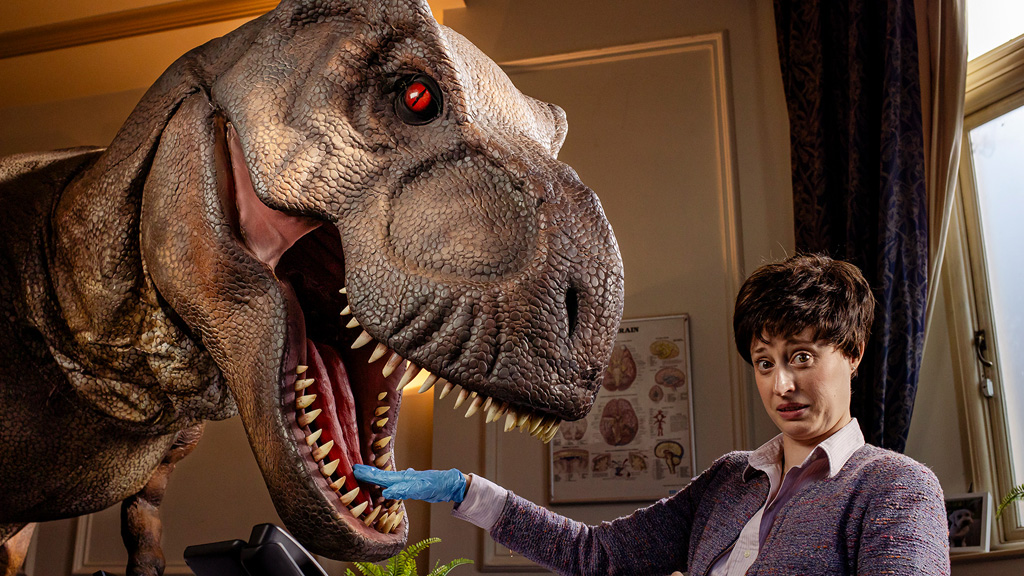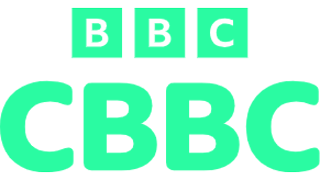Quick Summary
At a glance, this CBBC programme blends drama and documentary in a quirky entertainment episode that traces the birth of zero, the big bang and a lonely, grumpy moon, while an ISS cookery contest and DI Loofah’s arrest of a rogue banana add comic flair. A quick overview for UK television and British TV fans, this series episode offers programme highlights that will delight UK viewers looking for a fresh, fun slice of science‑history in the television guide and CBBC programming.
About This Program
‘Dinosaur Traitors, a Grumpy Moon and a Big Bang’ is the latest stand‑alone episode in the adventurous CBBC series that blends drama, documentary and light‑hearted entertainment. In this ambitious instalment the story jumps from the invention of the number zero to the very moment of the universe’s birth, while a lonely moon seeks companionship, an International Space Station cookery contest heats up, and the quirky detective DI Loofah makes a startling arrest of a banana. The episode is positioned as a flagship piece of British TV that showcases imaginative storytelling alongside factual science, making it a perfect fit for UK television audiences who enjoy a mix of humour, curiosity and educational content. Viewers will be taken on a whirlwind journey that begins with ancient mathematicians carving the first zero on clay tablets, then fast‑forwards through the cosmic timeline to the Big Bang itself. Interwoven with this narrative are three distinct vignettes: the grumpy Moon, personified with a dry wit, wanders the night sky feeling isolated and eventually finds solace in a surprise encounter with a troupe of travelling astronomers; the ISS cookery competition pits astronaut chefs against each other in zero‑gravity bake‑offs, complete with commentary from a charismatic Earth‑based host; and DI Loofah, a detective with a fondness for hygiene, leads a surreal investigation that culminates in the arrest of a mischievous banana suspected of smuggling secret messages. The episode balances factual exposition with whimsical plotlines, ensuring that the educational elements never feel heavy‑handed. The episode’s standout feature is its seamless integration of hard science and playful narrative. High‑definition visual effects recreate the moment of cosmic inflation, while the zero‑creation segment uses animated reenactments of early scholars in Mesopotamia, providing full details that satisfy both curious children and adult UK viewers. The ISS cookery competition is filmed with actual footage from the station, offering an authentic glimpse of life in orbit, and the judges’ witty banter adds a layer of entertainment that feels fresh on British TV. DI Loofah’s investigation, though absurd, cleverly references classic detective tropes, giving the drama a meta‑textual charm that will appeal to fans of both comedy and mystery. Each segment is punctuated by a lively soundtrack that mixes orchestral swells with contemporary beats, enhancing the episode’s dynamic pacing. British viewers have long appreciated programmes that combine learning with levity, and this episode delivers precisely that blend. The use of familiar cultural touchstones – such as the iconic British love of quirky detective stories and the nation’s historic contributions to mathematics – creates an immediate connection. Moreover, the episode’s setting on the International Space Station resonates with the UK’s growing interest in space exploration, especially after recent British astronaut missions. The humour is distinctly British, with dry wit and self‑deprecating jokes that align with the tone of beloved CBBC programming, making it an ideal choice for families seeking quality entertainment that also sparks curiosity about the universe. Within the broader CBBC programming slate, ‘Dinosaur Traitors, a Grumpy Moon and a Big Bang’ stands out as a flagship episode that pushes the envelope of what a children’s series can achieve. While CBBC traditionally offers a mix of animated series, factual documentaries and light drama, this episode merges all three into a cohesive whole‑hour special, signalling a strategic move towards more ambitious, cross‑genre storytelling. It complements the channel’s educational remit by providing an in‑depth review of scientific concepts, yet it remains firmly in the realm of entertainment, ensuring it fits comfortably alongside other popular series on the schedule. For UK television lovers consulting their television guide, this comprehensive guide highlights why the episode is a must‑watch event in the current series lineup.
Horrible Science broadcasts on CBBC at 5:30pm, Sunday, 21 September 2025. (Subtitles, repeat)

